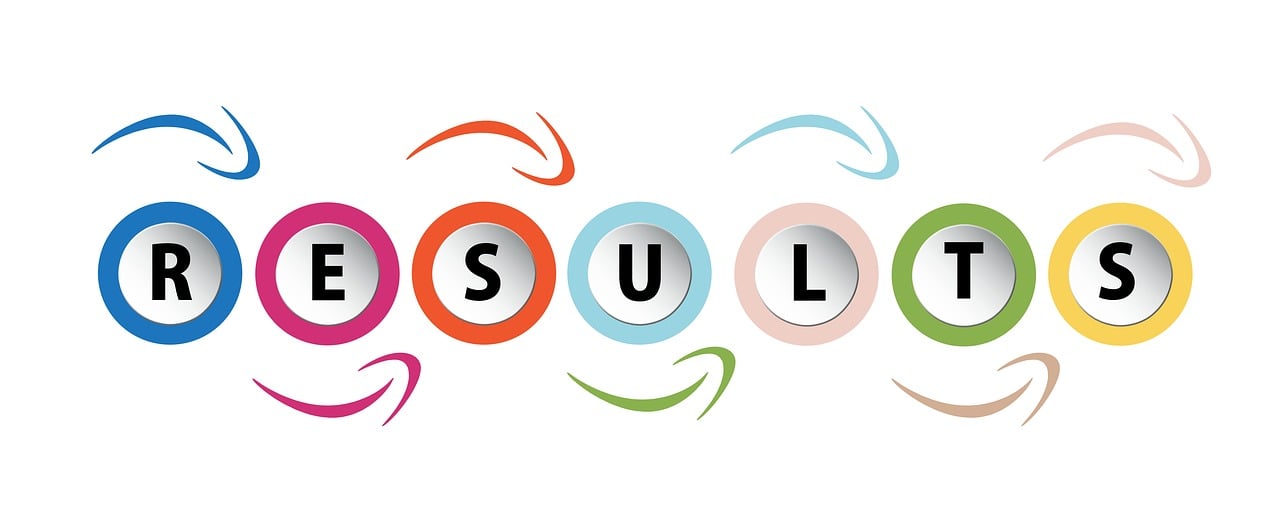In the fast-paced world we live in, leadership skills are not only essential in the workplace but also in our everyday lives. Whether it’s leading a team project, organizing a family gathering, or even taking charge of decisions in our personal lives, having effective leadership skills can make a significant difference. This article aims to provide you with valuable insights and practical tips on how to develop and enhance your leadership skills, empowering you to become a confident and influential leader in every aspect of your life. So, get ready to unlock your potential and discover the leader within you!
1. Recognize the Importance of Leadership Skills in Everyday Life
1.1 Why Leadership Skills are Essential
Leadership skills play a crucial role in everyday life, whether you realize it or not. They are not only important in professional settings, but they also have a significant impact on personal relationships, community involvement, and even your own personal growth. By developing leadership skills, you can become a more effective communicator, problem solver, and decision-maker, which will ultimately contribute to your success and fulfillment in all areas of life.
1.2 Benefits of Developing Leadership Skills
Developing leadership skills offers a wide range of benefits. Firstly, it enhances your ability to influence and inspire others. Great leaders have the power to motivate individuals and teams to accomplish their goals and perform at their best. Additionally, leadership skills help you become a more effective collaborator and team player. With strong leadership abilities, you can navigate through conflicts, foster cooperation, and build strong relationships with others.
Moreover, leadership skills enable you to take charge of your own life and make informed decisions. By developing these skills, you become better equipped to set clear goals, prioritize tasks, and take responsibility for your actions. This not only leads to personal growth but also allows you to make a positive impact on your community and society as a whole.
2. Start with Self-Leadership
2.1 Understand Yourself and Your Values
To become an effective leader, it is essential to start with self-leadership. Understanding your own values, beliefs, strengths, and weaknesses is the foundation for personal growth and leadership development. Take the time to reflect on your core values, what drives you, and what you stand for. This self-awareness will guide your decision-making and help you align your actions with your values.
2.2 Set Clear Goals and Priorities
Another aspect of self-leadership is setting clear goals and priorities. Take the time to identify what you want to achieve and break down your goals into smaller, manageable steps. This will help you stay focused and motivated as you make progress towards your objectives. Furthermore, setting priorities allows you to allocate your time and energy efficiently, ensuring that you are working towards what truly matters to you.
2.3 Take Responsibility for Your Actions
Part of being a leader is taking responsibility for your actions. Instead of blaming others or making excuses, own up to your mistakes and learn from them. Taking responsibility not only demonstrates integrity but also provides an opportunity for growth and improvement. By recognizing and learning from your failures, you can become a more resilient and effective leader in all aspects of life.

This image is property of pixabay.com.
3. Improve Communication Skills
3.1 Active Listening
Effective communication is a cornerstone of leadership. One crucial communication skill to develop is active listening. This involves giving your full attention to the speaker, focusing on their words, tone, and non-verbal cues. By practicing active listening, you can better understand others’ perspectives, build stronger relationships, and provide meaningful support. Remember to avoid interrupting and genuinely empathize with the speaker to foster a positive and open dialogue.
3.2 Effective Verbal Communication
In addition to active listening, honing your verbal communication skills is vital for effective leadership. Clear and concise communication helps convey your message accurately and avoids misunderstandings. Practice expressing your thoughts and ideas in a confident and articulate manner. Pay attention to your tone, volume, and body language, as they can significantly impact how your message is received. Effective verbal communication fosters understanding and collaboration, setting the stage for success.
3.3 Non-Verbal Communication
Non-verbal communication, such as facial expressions, gestures, and body language, plays a significant role in leadership. It can convey confidence, empathy, and trustworthiness. Be aware of your non-verbal cues and ensure they align with your intended message. Maintain good eye contact, use appropriate hand gestures, and adopt an open and relaxed posture. Aligning your verbal and non-verbal communication will enhance your leadership presence and make you more influential in various situations.
4. Cultivate Emotional Intelligence
4.1 Develop Self-Awareness
Emotional intelligence is the ability to recognize and manage your own emotions effectively, as well as understanding and empathizing with others. Developing self-awareness is a crucial aspect of emotional intelligence. Take the time to reflect on your emotions, triggers, and patterns of behavior. This awareness allows you to respond appropriately to various situations, make better decisions, and maintain healthy relationships.
4.2 Manage Emotions
Being able to manage your emotions is essential for effective leadership. Emotions can impact your decision-making and relationships, both positively and negatively. Practice techniques like deep breathing, mindfulness, and self-reflection to regulate your emotions and prevent impulsive reactions. By managing your emotions, you can lead with a clear and calm mind, inspiring confidence and trust in those around you.
4.3 Empathy and Understanding
Empathy is a crucial element of emotional intelligence and effective leadership. Seek to understand and connect with others’ feelings and perspectives. Listen actively and show genuine concern for their experiences. Empathy fosters trust, collaboration, and strengthens relationships. By demonstrating empathy and understanding, you create a positive and inclusive environment where everyone feels valued and supported.

This image is property of pixabay.com.
5. Enhance Problem-Solving Abilities
5.1 Analyze Problems and Identify Solutions
Strong problem-solving skills are a hallmark of effective leaders. When faced with challenges, take a systematic approach to analyze the problem and identify potential solutions. Break down complex problems into smaller, more manageable parts and consider different perspectives. Engage in critical thinking and evaluate the pros and cons of each potential solution. This approach will help you make informed decisions and take appropriate action.
5.2 Think Creatively
In addition to analytical thinking, fostering creativity is essential for effective problem-solving. Encourage yourself to think outside the box and explore innovative approaches. Seek inspiration from diverse sources, engage in brainstorming sessions, and be open to new ideas. Creative problem-solving can lead to groundbreaking solutions and promote growth and innovation within your team or community.
5.3 Make Decisions Confidently
Timely decision-making is a valuable leadership skill. After analyzing the problem and exploring potential solutions, make decisions with confidence. Trust your instincts, take into account all relevant information, and consider the potential outcomes. Recognize that not all decisions will be perfect, but making timely and informed decisions is essential for progress. Be prepared to take risks and learn from the outcomes, whether positive or negative.
6. Develop and Nurture Relationships
6.1 Build Trust and Integrity
Developing strong relationships built on trust and integrity is crucial for effective leadership. Be reliable, honest, and transparent in your interactions with others. Keep your promises and follow through on commitments. Consistency in your words and actions builds trust and fosters strong bonds. Strive to be a person of integrity, and others will feel comfortable relying on and following your lead.
6.2 Collaborate and Delegate
Leadership is not about doing everything yourself; it is about empowering others and working together to achieve common goals. Collaborate with others, leveraging their strengths and expertise. Delegate tasks and responsibilities, allowing others to develop their skills and contribute to the overall success. Effective collaboration and delegation build a sense of ownership and shared accomplishment, strengthening the team’s cohesion.
6.3 Provide Feedback and Support
Effective leaders provide feedback and support to help others grow and succeed. Offer constructive feedback in a positive and respectful manner, highlighting areas for improvement and acknowledging strengths. Be approachable and supportive, providing guidance and resources when needed. By investing time and effort into nurturing others’ growth, you create an environment that encourages personal development, loyalty, and high performance.

This image is property of pixabay.com.
7. Take Initiative and Show Accountability
7.1 Be Proactive
Leaders take initiative and exhibit a proactive mindset. Be observant and identify opportunities for improvement or innovation. Take the initiative to propose ideas, suggest changes, and lead by example. Proactively seek solutions to challenges instead of waiting for others to take action. By being proactive, you inspire others to do the same and create a culture of initiative and continuous improvement.
7.2 Take Ownership of Your Mistakes
Accountability is a vital quality of effective leaders. When you make mistakes, take ownership of them and learn from them. Acknowledge the impact of your actions, apologize if necessary, and take steps to rectify any negative consequences. By demonstrating accountability, you show integrity and a willingness to grow and improve. This attitude encourages those around you to take responsibility for their own actions and fosters a culture of continuous learning.
7.3 Learn from Failures and Move Forward
Failure is a natural part of life, and effective leaders know how to learn from it and move forward. Instead of dwelling on failures or allowing them to discourage you, view them as opportunities for growth and improvement. Analyze the lessons learned, adjust your approach, and persevere. Embrace failure as a stepping stone towards success and encourage others to do the same. By demonstrating resilience and a growth mindset, you inspire others to persevere in the face of challenges.
8. Embrace Continuous Learning and Growth
8.1 Seek New Knowledge and Experiences
Leadership is an ongoing journey of learning and growth. Continuously seek new knowledge and experiences to expand your horizons. Engage in professional development opportunities, such as workshops, courses, and conferences. Read books, articles, and blogs on leadership and related topics. Seek mentorship and guidance from experienced leaders. Embrace a mindset of lifelong learning, and your leadership skills will consistently evolve and improve.
8.2 Embrace Challenges and New Roles
To develop leadership skills, be willing to step out of your comfort zone and embrace challenges. Take on new responsibilities or roles that stretch your capabilities. Embracing challenges helps you develop new skills, gain confidence, and broaden your perspective. Embrace opportunities for growth and actively seek out experiences that push you beyond your current limits.
8.3 Reflect and Improve
Reflection is a powerful tool for personal growth and leadership development. Regularly take time to reflect on your experiences, decisions, and interactions. Consider what went well and what could have been improved. Take note of the lessons learned and determine how you can apply them in future situations. By actively reflecting on your experiences, you can identify areas for improvement and continuously develop your leadership skills.
9. Lead by Example
9.1 Exhibit Integrity and Honesty
Leaders must lead by example, demonstrating integrity and honesty in all their actions. Consistently adhere to your values and principles, even when faced with difficult choices. Be transparent and authentic in your communication and interactions. By exhibiting integrity, you inspire trust and credibility, making you an effective leader that others look up to.
9.2 Inspire and Motivate Others
An essential aspect of leadership is the ability to inspire and motivate others. Be passionate about your goals and convey that enthusiasm to those around you. Share your vision, communicate the importance of the work or project, and create a sense of purpose. Recognize and celebrate the achievements of others, and provide encouragement and support during challenging times. By inspiring and motivating others, you foster a culture of enthusiasm, dedication, and high performance.
9.3 Foster a Positive Environment
A positive work or community environment is essential for effective leadership. Create a culture where individuals feel valued, respected, and supported. Foster open communication, encourage collaboration, and promote a sense of belonging. Be approachable and empathetic, creating a safe space for expressing ideas, concerns, and feedback. By fostering a positive environment, you empower others to thrive and contribute their best.
10. Practice and Perseverance
10.1 Consistency and Commitment
Developing leadership skills requires consistent practice and commitment. Make a conscious effort to apply what you have learned in everyday life. Practice active listening, effective communication, and problem-solving regularly. Consistency in practicing leadership skills enhances your proficiency and helps you build confidence.
10.2 Learn from Mentors and Role Models
Seek guidance and mentorship from experienced leaders or role models whom you admire. Learn from their experiences, strategies, and advice. Observe how they handle challenges, communicate, and lead others. By learning from mentors and role models, you can gain valuable insights and apply these lessons to your own leadership journey.
10.3 Overcoming Obstacles
Leadership development is not without its challenges and obstacles. The key is to view these obstacles as opportunities for growth. Embrace the lessons learned from setbacks, adjust your approach, and keep moving forward. Develop resilience and a problem-solving mindset, as these qualities will help you navigate through obstacles successfully.
In conclusion, developing leadership skills in everyday life is essential for personal growth, effective communication, and success in various domains. By starting with self-leadership, improving communication skills, cultivating emotional intelligence, enhancing problem-solving abilities, developing and nurturing relationships, and taking initiative and accountability, you can become an effective leader. Embrace continuous learning and growth, lead by example, and practice perseverance to further enhance your leadership skills. By following these strategies and incorporating them into your daily life, you can become a positive and influential leader in all aspects of life.